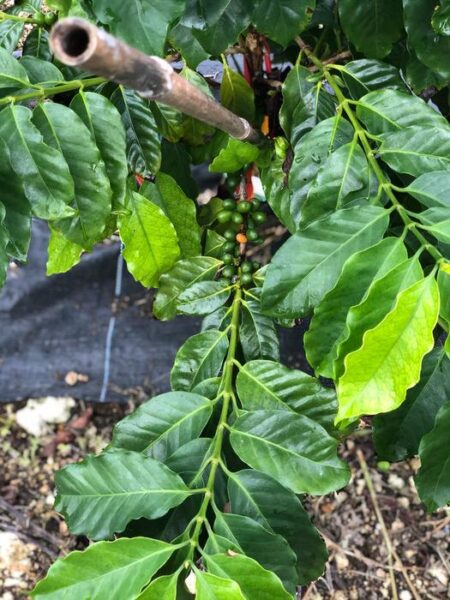UF Researchers Explore “Climate-Smart Coffee” Solutions
As climate change threatens to drastically reduce Arabica coffee production by 2050, researchers at the University of Florida (UF) are exploring alternatives to ensure your morning cup of joe remains sustainable. A new study led by UF/IFAS scientists suggests that Robusta coffee, traditionally considered inferior to Arabica, could be a viable solution to maintain global coffee supplies in the face of changing environmental conditions.
Coffee is a cornerstone of daily life for billions, with over 2.2 billion cups consumed globally each day. However, the industry faces significant challenges as climate change is expected to decrease Arabica production by about 80% by mid-century. This looming crisis has prompted researchers to seek out more resilient coffee varieties and cultivation methods.
Robusta: The Underdog Rising to the Challenge
Felipe Ferrao, a UF research assistant scientist in horticultural sciences and lead author of the study, explains the urgency of the situation: “If you consider that nowadays, about 60% of coffee beans commercialized around the globe are from Coffea arabica, the coffee industry is looking for alternatives. This is how and where Robusta coffee emerges as a good candidate.”
The research team, which included collaborators from France and Brazil, conducted a five-year study evaluating Robusta and Arabica coffee varieties in three high-altitude locations in Brazil. Their findings, published in the journal Crop Science, reveal that Robusta coffee is highly adaptable and can thrive in high-altitude regions, combining good production yields with favorable flavor profiles.
“Robusta is flexible because it has a large diversity and therefore different plants can be selected, depending on the weather conditions,” Ferrao notes. “With that said, we can shed some light on the fundamental question about the coffee of the future – climate-smart coffee.”
The researchers suggest that Robusta coffee can potentially combine three crucial elements for future coffee cultivation:
1. Sustainability: Producing more coffee with fewer inputs such as fertilizer and water.
2. Quality: Delivering good flavor to meet consumer demand.
3. Plasticity: The ability to adapt to new production systems and environments.
Why it matters: The potential shift towards Robusta coffee could have far-reaching implications for both coffee producers and consumers worldwide. For farmers, especially those in regions where Arabica cultivation becomes increasingly challenging, Robusta could offer a more resilient and productive alternative. Consumers may need to adjust their taste preferences, but the trade-off could be a more sustainable and reliable coffee supply in the face of climate change.
Moreover, this research highlights the broader issue of agricultural adaptation to climate change. As global temperatures rise and weather patterns shift, many crops will face similar challenges. The methods and approaches used in this coffee study could inform adaptation strategies for other crops essential to global food security.
However, questions remain about the widespread adoption of Robusta coffee. Consumer acceptance of its different flavor profile compared to Arabica will be crucial. Additionally, the economic implications for current Arabica producers and the global coffee market will need to be carefully considered.
Looking ahead, the UF research team is expanding their studies to test both Robusta and Arabica coffees in various locations in Florida. “Here in Florida, we have some trials to test both Robusta and Arabica coffees in different locations. When compared to Brazil, the differences in the soil properties, rainfall distribution, temperature and weather events will certainly impact the coffee production and its quality,” Ferrao explains.
These trials, including attempts to grow coffee in South Florida and indoor production using high-tunnel structures in North Florida, mark the first time such a diverse set of coffee materials has been tested under Florida conditions. The results could potentially open new avenues for coffee production in non-traditional regions, further diversifying the global coffee supply chain.
As climate change continues to reshape agricultural landscapes worldwide, research like this becomes increasingly vital. The future of coffee production – and potentially many other crops – may depend on our ability to adapt and innovate in the face of environmental challenges.


